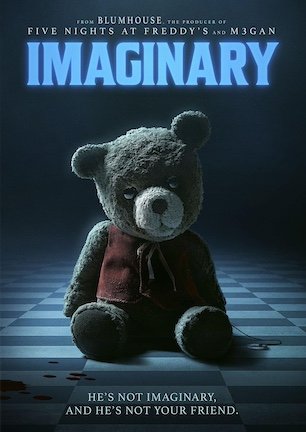Studio: IFC Midnight
Director: Malgorzata Szumowska
Writer: Catherine S. McMullen
Producer: David Lancaster, Stephanie Wilcox, Aoife O’Sullivan, Tristan Orpen Lynch, Marie Gade Denessen
Stars: Raffey Cassidy, Michiel Huisman, Denise Gough
Review Score:
Summary:
A teen raised in an isolated commune of women comes to question their male cult leader while discovering her adult identity.
Review:
So you didn’t get enough of Michiel Huisman as a charismatic cultist in “The Invitation?” The often-adaptable actor treads adjacent territory within director Malgorzata Szumowska’s “The Other Lamb.”
“The Invitation” (review here) cast Huisman as a New Age idealist whose search for a self-help solution to suffering detoured into dangerous delusion. “The Other Lamb” shapes similar clay into a man whose persuasive personality manifests a different form of malevolence. As ‘Shepherd,’ the lone male presiding over an isolated commune of women and girls who live off the land and under his control, Huisman more closely embodies a radical religious sect leader with icy-eyed influence over subjugated willpowers.
The true fulcrum of “The Other Lamb” is Selah (Raffey Cassidy). Born to a mother who supposedly died not long after labor, Selah has never known a life outside of Shepherd’s “flock.” In their remote forest camp straight out of pioneer or pilgrim times, older women serve as Shepherd’s “wives.” Selah belongs to the “daughters.” During prayer-driven frenzies, the looks on these young faces contort with desperation for Shepherd’s approval as they long to “receive his grace” like the blessed vessels selected to lay with their leader each night.
A crack forms in Selah’s conviction after police force Shepherd’s lambs to find a new home. Over the course of their arduous on-foot trek across vast countryside, Selah sees and hears things that introduce doubt about Shepherd’s piety. Sarah (Denise Gough), an ostracized wife whose penance for the sin of vanity involves mentoring menstruating women, gets in Selah’s ear with demeaning words of warning. If Selah experiences the monthly bleeding that identifies her as impure, she too will fall out of Shepherd’s favor. When the inevitable happens, Selah takes an unlikely arc out of adolescence that causes her to question the truth about the dogma she unconditionally devoted herself to.
Framed as a coming-of-age fable steeped in dark drama, “The Other Lamb” stays at a distance that keeps it from being as unsettling as other cult-related horror stories. “The Invitation’s” smoldering suspense unnerves because of its understated intensity and ultimately apocalyptic implications. Heaven’s Gate or Jonestown-inspired tales such as “The Sacrament” (review here) hit haunting chords of sympathy because we can envision susceptible loved ones echoed in true-life events of broken minds manipulated through indoctrinated desires to build better lives.
Comparatively lower stakes prevent “The Other Lamb” from possessing a significantly sinister simmer or intangible tension. The film plays in a thematic league alongside “The Handmaid’s Tale,” except without such extreme dystopian bleakness. Although it appears to take place in the here and now, an otherworldly air simultaneously separates the setting from our space and time. This cools down our capacity to connect with the characters as relatable people, creating a passively safe, voyeuristic experience instead of an immersive one grounded in universally understandable fears. “The Other Lamb” feels like it fights against its nature as fantasized fiction to be emotionally accessible.
Intentions aren’t preoccupied with conveying dread like a traditional thriller would though. The movie instead makes mood out of saddened violin strains and contemplative stretches of time. Metaphoric material gets built by stylized shots of faces staring intently through foreground fire, fabric billowing underwater in slow motion, lens flares over grazing lambs, a slow zoom into a dead bird’s plumage writhing with maggots, and enough dream sequences to fill a “Nightmare on Elm Street” film.
Divorced from exploratory imagery paralleling Selah’s slowly unfolding epiphany, a tangible tale you can reach out and touch becomes harder to find. “The Other Lamb’s” narrative hits hiccups of nonlinearity. Not in large chunks or frequent flashbacks, but in quick cuts to events from the near past. It’s one more technique adding cryptic creativity to an aesthetic already micro-dosing on arthouse improvisation in place of pointed plotting.
Put in other terms, “The Other Lamb” deals in dreaminess that delves into ideas about being confined in a psychologically stunting cage. This path conflicts with a premise poised to present more cult-connected creeps than the movie actually puts on its plate. Whether that equates to disappointment or delight comes down to how much an individual identifies with Selah’s unstrung plunge into accelerated adulthood, as well as one’s patience for super slow burns prioritizing cinematic craft over concrete chills.
Review Score: 55







“Sting” delivers spider-centric chills like Joe Dante does horror, except with more entertainment-minded wickedness than family-friendly whimsy.